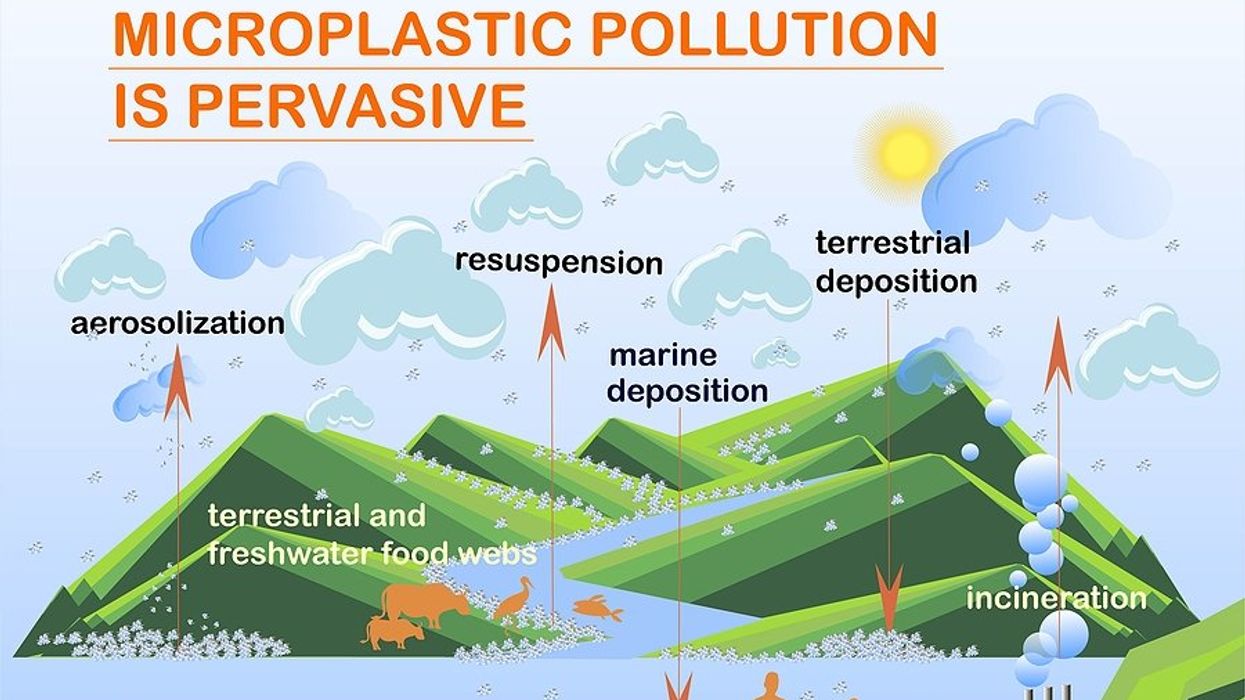Scientists have found microplastics almost everywhere, and now they're discovering that these tiny particles are floating in the air we breathe, posing potential health risks.
Simon Ducroquet and Shannon Osaka report for The Washington Post.
In short:
- Researchers estimate that people inhale or ingest between 74,000 and 121,000 microplastic particles annually through breathing, eating, and drinking.
- These tiny particles can infiltrate our lungs and bloodstream, potentially causing inflammation and other health issues.
- Scientists warn that the exact health impacts are still unknown, but early research links microplastics to various chronic conditions.
Key quote:
“There’s just so much plastic around us. We wear synthetic clothes, and those are shedding microplastics. We work on synthetic carpets. We buy food wrapped in plastic.”
— Sherri Mason, researcher and sustainability coordinator, Pennsylvania State University at Erie.
Why this matters:
Microplastics' infiltration into our bodies could lead to serious health issues, including inflammation and hormonal imbalances, making this an urgent issue for health and environmental policy. Read more: A plastic recipe for societal suicide.

















